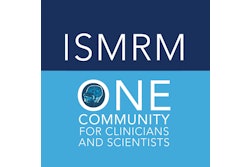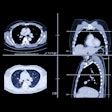Dear AuntMinnie Member,
As legalization of marijuana spreads across the U.S., researchers from Vermont are raising concerns about the impact that smoking cannabis can have on the brains of young people, based on findings from MRI scans.
Researchers have found that adolescents who smoked cannabis as few as one or two times had changes in gray-matter volume that differentiated them from adolescents who never smoked. They believe the changes are due to the effect of the active ingredient in cannabis, delta-9-tetrahydrocannabinol (THC), on brain structure.
The researchers believe the findings indicate that cannabis use may not be completely harmless and that public health authorities should keep a close eye on marijuana use in some vulnerable populations as legalization spreads.
In other MRI news, Pennsylvania researchers developed computer-aided detection (CAD) software to analyze MRI scans to determine whether patients with multiple sclerosis need a contrast agent for their exams. Use of the CAD software could potentially reduce patient exposure to gadolinium-based contrast agents.
Is it a good idea to market full-body MRI screening exams direct to consumers? Regardless of what you think, an imaging provider in the New York City area is already doing it.
These stories and more are available in our MRI Community.
Personalized breast screening
A different type of screening was under discussion in the closing address at the International Society for Magnetic Resonance in Medicine (ISMRM) meeting earlier this month. Noted breast MRI expert Dr. Christiane Kuhl of Germany discussed how personalized breast screening is already becoming a reality.
Deep learning is driving the development of screening strategies that can be tailored to a woman's lifetime risk of developing breast cancer. These strategies can also be applied to directing treatment, so in the near future fewer women will be treated for cancers that might never pose a health threat.
Our article on Dr. Kuhl's talk can be found in our RADCast @ ISMRM.
Google AI targets lung screening
Finally, internet search giant Google has set its sights on the use of artificial intelligence (AI) in medical imaging. The company worked with a group from Northwestern Medicine in Chicago on an AI model that analyzed CT lung cancer screening exams to predict which patients with suspicious nodules might be more at risk of developing cancer in a year -- a key consideration in deciding which patients to work up. Read all about it in our Artificial Intelligence Community.



















